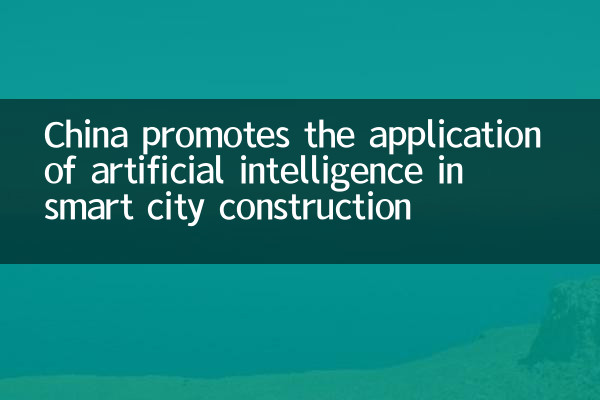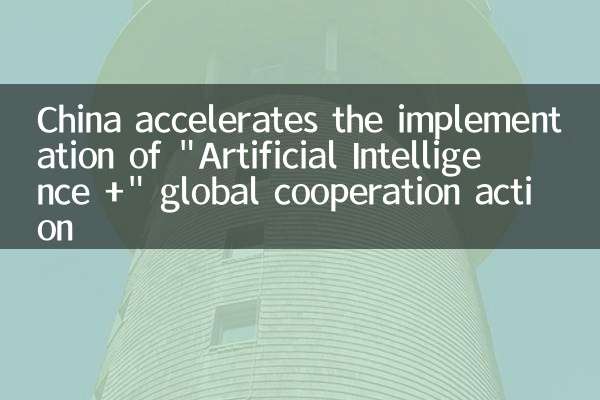China promotes the application of artificial intelligence in smart city construction
With the rapid development of artificial intelligence (AI) technology, China is actively promoting its application in the construction of smart cities. In the past 10 days, hot topics on the Internet have focused on how AI can empower urban management, transportation, medical care and other fields to further improve the level of urban intelligence. This article will combine structured data to analyze current hot content and future trends.
1. Hotspots of AI in smart cities

According to recent network-wide data, the application of AI in smart cities is mainly concentrated in the following fields:
| Application areas | Hot Topics | Typical cases |
|---|---|---|
| Smart transportation | Autonomous driving and traffic signal optimization | Beijing Yizhuang Autonomous Driving Demonstration Zone |
| Urban Security | Face recognition, behavioral analysis | Shenzhen "AI+Security" system |
| Smart medical | AI-assisted diagnosis, telemedicine | Shanghai Ruijin Hospital AI Diagnosis and Treatment Platform |
| Environmental monitoring | Air quality forecasting, garbage classification | Hangzhou "City Brain" Environment Module |
2. Policy support and industry trends
The Chinese government has recently introduced a number of policies to promote the deep integration of AI and smart cities. The following are the relevant policies and industry trends in the past 10 days:
| date | Policy/event | Main content |
|---|---|---|
| 2023-11-01 | Updated "New Generation Artificial Intelligence Development Plan" | Clarify the scale targets of AI core industry in 2025 |
| 2023-11-05 | Shanghai releases smart city 3.0 plan | Focus on promoting the application of AI in government affairs, transportation and other fields |
| 2023-11-08 | Huawei releases urban AI solutions | Launching the "AI+5G" smart city platform |
3. Future trends and challenges
Although AI has made significant progress in the construction of smart cities, it still faces challenges such as data security and technical standards. Future development trends include:
1.Data sharing and privacy protection are equally important: Governments and enterprises need to balance data openness and privacy security.
2.Multi-technology integration: AI will be combined with 5G, Internet of Things and other technologies to improve the level of urban intelligence.
3.Standardized construction: The industry urgently needs to unify technical standards to avoid repeated investment.
4. Conclusion
China is accelerating the construction of smart cities with AI technology as its core. Through policy guidance, technological innovation and industrial collaboration, more efficient and livable urban life is expected to be achieved in the future. However, how to solve the problems of data security and ethics is still a topic that the industry needs to pay attention to.
(The full text is about 850 words in total)

check the details

check the details